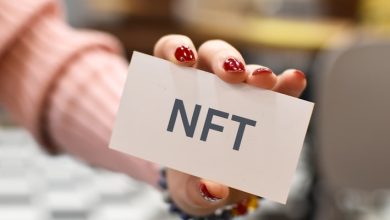Exploring Decentralized Finance: Innovations Transforming Finance

- Understanding the basics of decentralized finance
- The rise of blockchain technology in the financial sector
- Evolving financial systems through decentralized platforms
- Challenges and opportunities in the decentralized finance space
- Exploring the potential impact of DeFi on traditional banking
- Key players and projects shaping the future of decentralized finance
Understanding the basics of decentralized finance
Decentralized finance, also known as DeFi, is a groundbreaking concept that is revolutionizing the traditional financial system. In the world of DeFi, financial transactions are conducted without the need for intermediaries such as banks or financial institutions. Instead, decentralized applications (dApps) run on the blockchain network, allowing users to interact directly with each other.
One of the key characteristics of DeFi is its open and permissionless nature. This means that anyone with an internet connection can access DeFi services without having to go through a lengthy approval process. As a result, DeFi has the potential to democratize finance and make financial services more accessible to people around the world.
Decentralized finance offers a wide range of financial products and services, including lending, borrowing, trading, and investing. Users can lend their digital assets to earn interest, borrow assets by providing collateral, trade cryptocurrencies on decentralized exchanges, and invest in various DeFi projects.
One of the most popular applications of DeFi is decentralized lending platforms, where users can borrow and lend digital assets without the need for a central authority. These platforms use smart contracts to automate the lending process, ensuring that loans are securely collateralized and that interest rates are determined by supply and demand.
Overall, decentralized finance is still a relatively new and rapidly evolving field. As more developers and users flock to DeFi, we can expect to see even more innovations that will continue to transform the financial landscape. Whether you are a seasoned investor or someone new to the world of finance, exploring DeFi can offer exciting opportunities to participate in this decentralized revolution.
The rise of blockchain technology in the financial sector
Blockchain technology has been making significant strides in the financial sector, revolutionizing the way transactions are conducted and recorded. This decentralized technology offers a secure and transparent way of managing financial data, eliminating the need for intermediaries such as banks. As a result, blockchain has the potential to streamline processes, reduce costs, and enhance security in the financial industry.
One of the key areas where blockchain is making an impact is in the realm of decentralized finance (DeFi). DeFi refers to the use of blockchain and cryptocurrency to recreate traditional financial systems such as banking, lending, and trading without the need for central authorities. This innovation is opening up new opportunities for individuals to access financial services and participate in the global economy.
With the rise of blockchain technology, we are witnessing the emergence of new financial instruments and platforms that are redefining the way we think about finance. Smart contracts, for example, are self-executing contracts with the terms of the agreement directly written into code. These contracts are stored on a blockchain and automatically enforce the terms when predefined conditions are met, eliminating the need for intermediaries and reducing the risk of fraud.
Evolving financial systems through decentralized platforms
Decentralized platforms are revolutionizing the traditional financial systems by offering innovative solutions to long-standing challenges. These platforms leverage blockchain technology to create a transparent and secure environment for various financial activities, such as lending, borrowing, trading, and investing. By eliminating the need for intermediaries, decentralized finance (DeFi) enables direct peer-to-peer transactions, reducing costs and increasing efficiency.
One of the key advantages of decentralized platforms is their accessibility. Anyone with an internet connection can participate in DeFi, regardless of their location or financial status. This inclusivity opens up new opportunities for individuals who were previously excluded from traditional financial services. Moreover, decentralized platforms operate 24/7, allowing users to engage in financial activities at any time, without being restricted by banking hours or holidays.
Another significant benefit of decentralized finance is the increased security it provides. By utilizing smart contracts, DeFi platforms automate the execution of transactions, reducing the risk of fraud or manipulation. Additionally, all transactions on the blockchain are recorded and immutable, ensuring transparency and accountability. This level of security and trust is particularly appealing to users who are wary of centralized financial institutions.
Challenges and opportunities in the decentralized finance space
The decentralized finance (DeFi) space presents both challenges and opportunities for the financial industry. On one hand, the lack of centralized control in DeFi platforms can lead to security vulnerabilities and potential risks for users. It is essential for developers and users to stay vigilant and implement robust security measures to mitigate these risks.
On the other hand, the decentralized nature of DeFi opens up a world of opportunities for innovation and financial inclusion. By eliminating intermediaries and enabling peer-to-peer transactions, DeFi has the potential to lower costs, increase efficiency, and provide access to financial services for underserved populations around the world.
As the DeFi ecosystem continues to evolve, it is crucial for stakeholders to collaborate and address the challenges while leveraging the opportunities presented by this transformative technology. With the right approach and strategic partnerships, DeFi has the potential to revolutionize the traditional financial landscape and empower individuals to take control of their financial futures.
Exploring the potential impact of DeFi on traditional banking
Decentralized Finance, or DeFi, has been making waves in the financial world in recent years. This innovative technology has the potential to revolutionize the way we think about banking and finance. One of the key areas where DeFi could have a significant impact is on traditional banking. By leveraging blockchain technology and smart contracts, DeFi platforms offer users the ability to access financial services without the need for intermediaries like banks.
One of the main ways in which DeFi could disrupt traditional banking is by offering users greater control over their finances. With DeFi, users can access a wide range of financial services, such as lending, borrowing, and trading, without having to rely on a bank to facilitate these transactions. This level of control is unprecedented in the traditional banking system, where banks act as gatekeepers to financial services.
Another potential impact of DeFi on traditional banking is the reduction of fees and transaction costs. Because DeFi platforms operate on blockchain technology, transactions can be executed more quickly and at a lower cost than traditional banking systems. This could make financial services more accessible to a wider range of people, particularly those in underserved communities who may not have access to traditional banking services.
Key players and projects shaping the future of decentralized finance
Decentralized finance (DeFi) is a rapidly evolving sector within the cryptocurrency industry that is revolutionizing traditional finance systems. Several key players and projects are at the forefront of this transformation, driving innovation and shaping the future of DeFi.
One of the most influential figures in the DeFi space is Vitalik Buterin, the co-founder of Ethereum. Ethereum is a blockchain platform that has played a pivotal role in enabling decentralized applications and smart contracts. Buterin’s vision for a decentralized financial system has inspired countless projects and developers to build on the Ethereum network, pushing the boundaries of what is possible in the world of finance.
Another key player in the DeFi ecosystem is Compound Finance, a decentralized lending platform that allows users to borrow and lend cryptocurrencies without the need for traditional financial intermediaries. Compound’s innovative protocol has gained significant traction in the DeFi space, demonstrating the potential for decentralized lending to disrupt the traditional banking sector.
Uniswap is another project that is shaping the future of DeFi by providing a decentralized exchange platform for swapping ERC-20 tokens. Uniswap’s automated market-making system has revolutionized the way users trade digital assets, offering a more efficient and transparent alternative to centralized exchanges.
Other notable projects in the DeFi space include MakerDAO, Aave, and Synthetix, each contributing unique innovations to the ecosystem. MakerDAO, for example, introduced the concept of decentralized stablecoins, while Aave pioneered flash loans and liquidity pools. Synthetix, on the other hand, enables the creation of synthetic assets that track the value of real-world assets.
As these key players and projects continue to push the boundaries of decentralized finance, the future of finance is looking increasingly decentralized, transparent, and accessible to all. By leveraging blockchain technology and smart contracts, DeFi is unlocking new opportunities for financial inclusion and innovation, paving the way for a more equitable and efficient global financial system.



